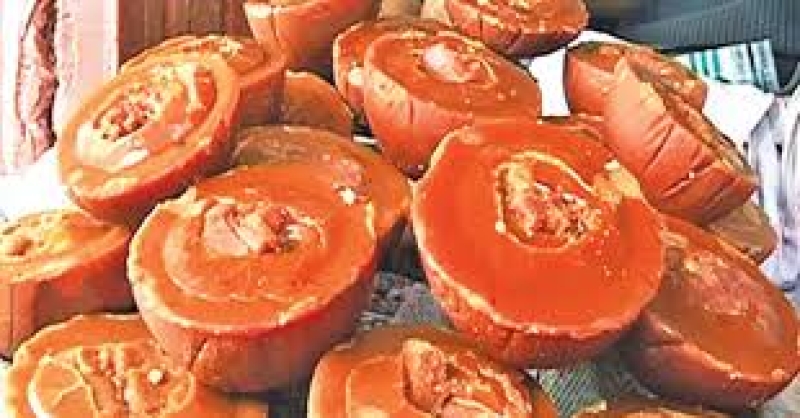- UNRWA Situation Report on Crisis in Gaza & Occupied West Bank |
- Intimidation or bloodshed cannot halt Bangladesh’s march to democracy |
- Khaleda Zia integral to an important chapter in BD history: Yunus |
- Enthusiasm marks Victory Day celebrations across Bangladesh |
- Dhaka-Delhi ties deep; to be shaped by trust, dignity, mutual respect |
Molasses tradition thrives in Jhenaidah village

In the tranquil village of Khandakbaria under Shailkupa upazila, a plume of sweet-scented steam curls into the air as a rustic factory hums with life, a symbol of heritage and resilience that has defied time for nearly six decades.
Here, amidst lush sugarcane fields and the gentle murmur of rural life, the art of traditional molasses-making continues to thrive, unfazed by the passage of generations or the march of modernity.
Tucked along the roadside like a well-kept secret, this humble facility has been producing pure, unadulterated sugarcane molasses—known locally as ‘gur’—through a time-honoured process that blends old-world charm with contemporary adaptations.
Operated by brothers Rezaul Islam and Mizanur Rahman, the factory stands as a testament to their late father's vision and devotion, his legacy preserved in every drop of the golden syrup they lovingly craft.
“We’re simply carrying on what our father began,” said Mizanur, his hands stained with cane juice, eyes glowing with pride.
“Long before the Mobarakganj Sugar Mill rose in Kaliganj in 1965, he was boiling molasses in clay pots right here, using cattle-driven crushers to extract the juice,” he said.
Today, though the bulls are gone, replaced by belt-powered shallow engines, much of the process remains deliciously traditional.
The sugarcane—harvested fresh from nearby fields—is fed into machines that crush the stalks, releasing a stream of green-gold nectar.
The juice is then filtered through coarse cloth and poured into enormous pots set over open, wood-fired stoves. Flames dance beneath six clay ovens, coaxing the liquid to a boil until it thickens and darkens into a deep reddish hue, redolent with caramelised sweetness.
The bubbling syrup is stirred with care, shifted between stoves to perfect its consistency, then ladled into tin vessels and cooled in clay pots—a ritual as rhythmic as the seasons.
The result: molasses of remarkable flavour, colour and purity, beloved in kitchens far and wide for sweet treats such as pitha, payesh, semai and suji.
Once a staple of rural households across Jhenaidah, such molasses-making units have become increasingly scarce, giving the brothers' factory a near-mythic status in the area.
With its tin-roofed shelter, soot-darkened walls, and the ever-present scent of burning wood and cane, it is more than a workplace—it is a living museum of rural craftsmanship.
Production typically spans the cool months from December to March, with around one kilogram of molasses extracted from every ten kilograms of sugarcane.
“In our heyday, we could make 400 kilograms a month. These days, the yield is lower, but we remain committed to quality over quantity,” he said.
Rezaul added, “This year, we hope to produce about 30 maunds—roughly 1,200 kilograms. We’re selling each kilo for Tk 200. Some farmers bring their own cane and use our facility to make molasses for home use. It gives them better value than selling raw cane at low prices.”
The molasses, once cooled and packed, travels beyond Jhenaidah, sweetening meals in distant districts while kindling a sense of nostalgia among those who know its roots.
Additional Agriculture Officer Abul Hasnat praised the factory's efforts, noting that local authorities are fully supporting such initiatives to ensure safe and high-quality production.
“This is a shining example of how traditional industries can survive and prosper with the right guidance,” he said.
Indeed, as long as the fires burn beneath the clay stoves of Khandakbaria and the cane fields yield their bounty, the brothers' syrupy legacy is set to endure—thick, golden and unforgettable, reports UNB.

